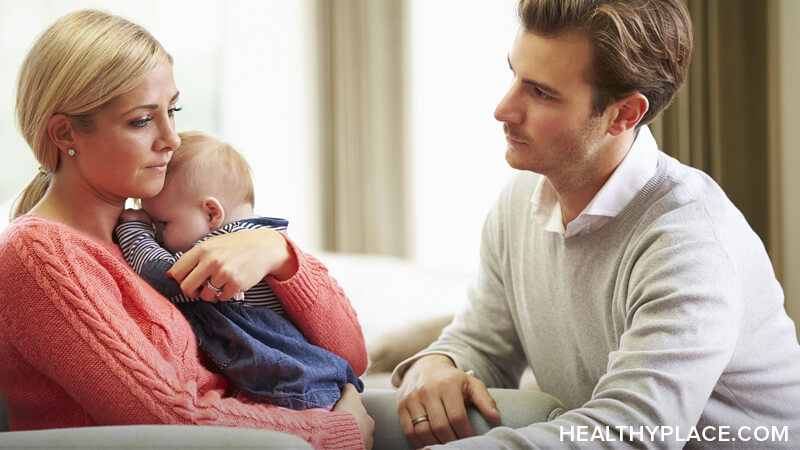Postpartum Depression Treatment

Postpartum depression treatment is critical as the illness compromises a woman's ability to care for her baby.
Postpartum depression (PPD) is a common illness with more than one-in-ten women experiencing it after childbirth. PPD may come on quickly but more often postpartum depression symptoms build over the first few months after delivery.
The American Academy of Pediatrics estimates 400,000 infants are born to depressed mothers yearly; however, postpartum depression is often overlooked by both the mother and doctor. Not getting treatment for postpartum depression though, can have long-term effects on child development and behavior.1
Counseling Treatment for Postpartum Depression
Having a baby is an overwhelming and life-changing experience, increasing stress and often causing symptoms of depression. Counseling treatment for postpartum depression can lessen the anxiety of being a new mother. This postpartum depression treatment focuses on giving the patient information about their illness and providing the patient with tools to help deal with postpartum depression. Family, couple and group counseling may also be helpful.
Counseling is done by a psychiatrist, psychologist or other mental health professional. This treatment for postpartum depression has the advantage of helping the mother while not risking harm to the baby. Unfortunately, counseling can take time and money that may not always be available.
Medication Treatment for Postpartum Depression
Postpartum depression treatment often includes antidepressant medication just as it would for any clinical depression. Unfortunately, medication passes into the breast milk of the mother, so those who are breastfeeding have to carefully weigh the possible risk to the baby. Most antidepressants are thought to be safe to use postpartum but the issue has not been thoroughly studied. If this is the first incidence of major depression, 6 – 12 months of antidepressant treatment is recommended.1
Types of antidepressants typically used in the treatment for postpartum depression include:
- Selective serotonin reuptake inhibitor (SSRI) medication such as fluoxetine (Prozac) or are first-line treatments.
- Serotonin-norepinephrine reuptake inhibitors (SNRIs), such as desvenlafaxine (Pristiq) or duloxetine (Cymbalta) may be used to treat postpartum depression occurring with anxiety.
- Tricyclic antidepressants are also available but some studies suggest women respond better to SSRIs.
Hormone therapy either alone or with an antidepressant may also be used to treat postpartum depression. Estrogen therapy is the most common.
Treatment of Postpartum Depression with Electroconvulsive Therapy
In the most severe cases, inpatient treatment of postpartum depression is required and electroconvulsive therapy (ECT) may be considered. Electroconvulsive therapy involves the application of a small electrical current to part of the brain to create chemical changes that alleviate symptoms of postpartum depression. Electroconvulsive therapy is typically considered for women with severe suicidal ideation or psychosis. Electroconvulsive therapy in postpartum women is considered to be a safe, effective and fast treatment.
APA Reference
Tracy, N.
(2022, January 3). Postpartum Depression Treatment, HealthyPlace. Retrieved
on 2026, March 5 from https://www.healthyplace.com/depression/postpartum-depression/postpartum-depression-treatment



